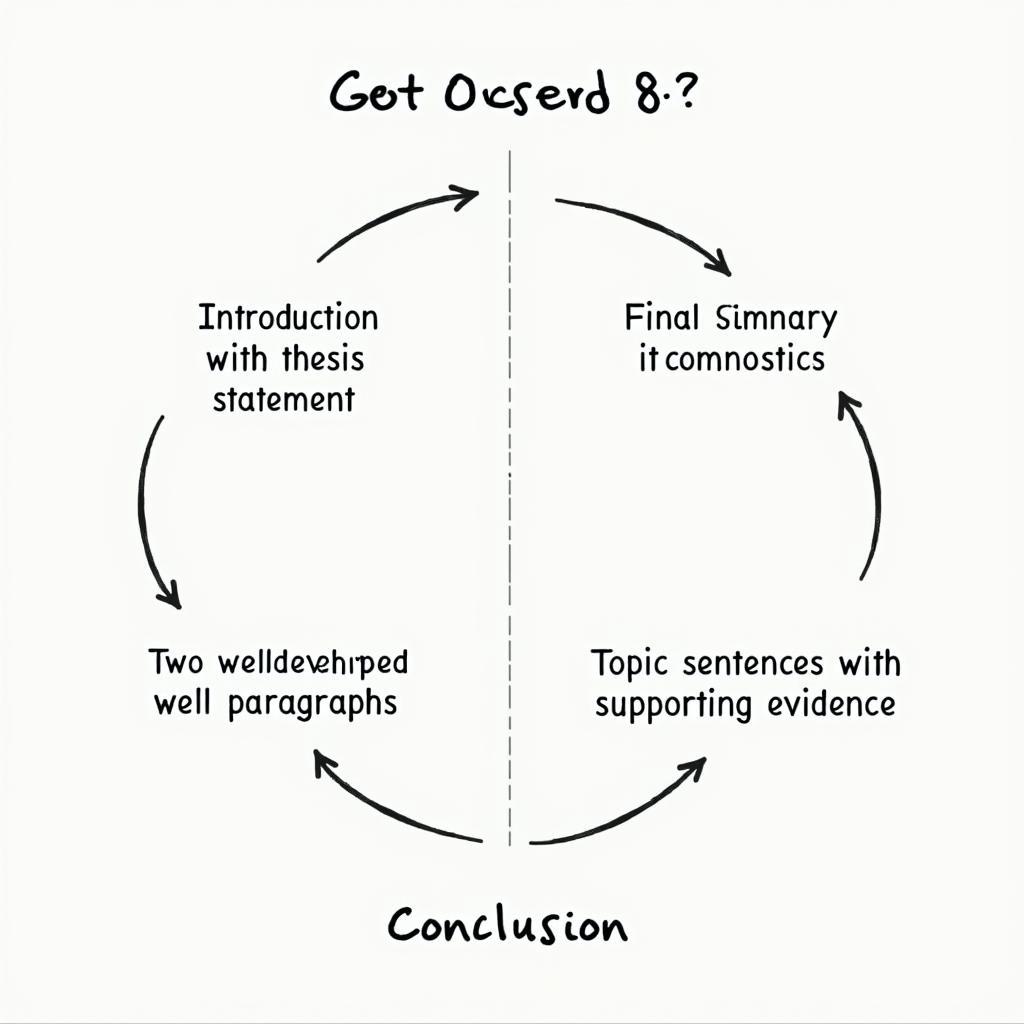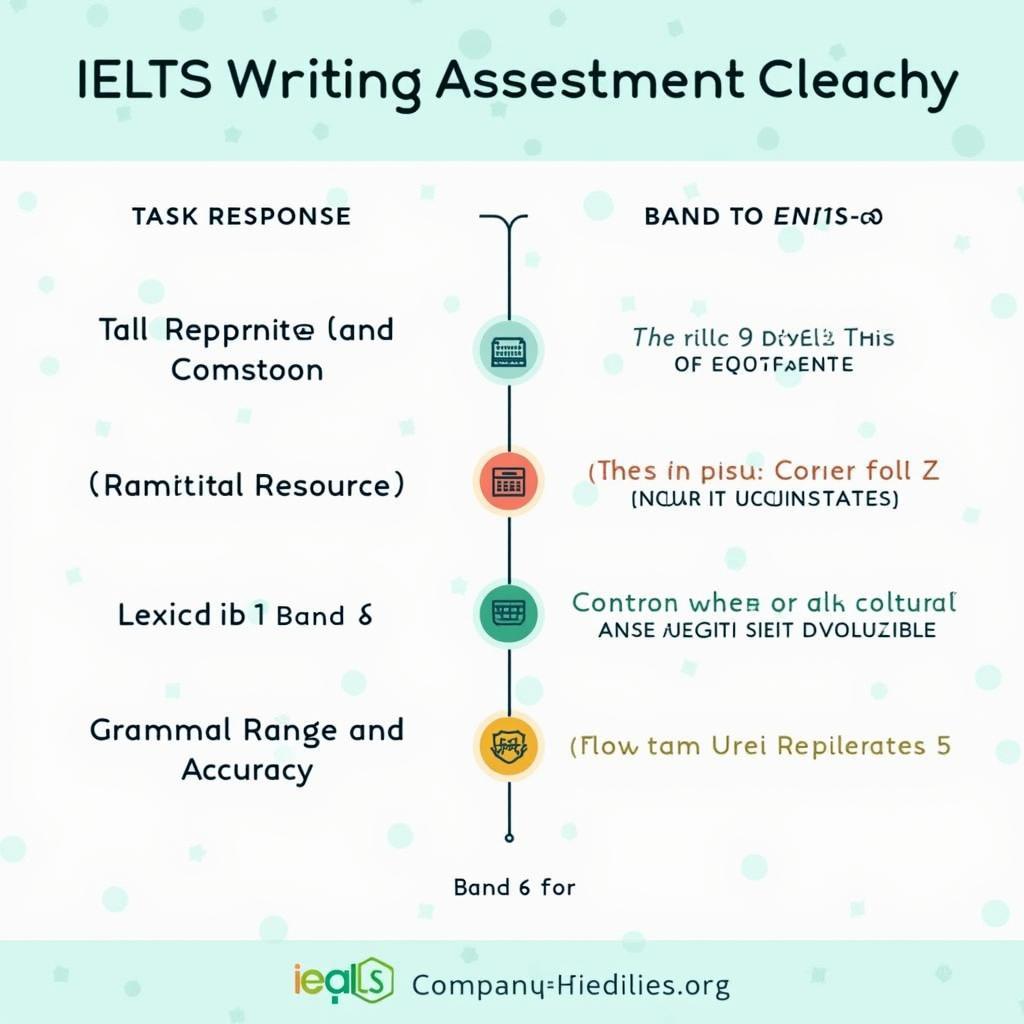Introduction
Taxation remains one of the most frequently discussed economic topics in IELTS Writing Task 2 examinations. This subject appears regularly because it intersects with government policy, social welfare, economic development, and individual responsibility – all core themes in academic writing assessments. Understanding how to approach taxation-related questions will significantly enhance your ability to produce well-structured, sophisticated responses.
Table Of Contents
- Introduction
- Question & Analysis
- Band 8-9 Sample Essay
- Band Score Analysis
- Band 6.5-7 Sample Essay
- Band Score Analysis
- Band 5-6 Sample Essay
- Band Score Analysis
- Learning from Mistakes
- Essential Vocabulary
- High-Scoring Sentence Structures
- 1. Complex Subordination with Concessive Clauses
- 2. Non-Defining Relative Clauses with Additional Information
- 3. Participle Phrases for Conciseness
- 4. Cleft Sentences for Emphasis
- 5. Advanced Conditionals (Mixed and Third Conditional)
- 6. Inversion for Formal Emphasis
- Self-Assessment Checklist
- Before Writing (5 minutes)
- While Writing (30 minutes)
- After Writing (5 minutes)
- Time Management Tips
- Conclusion
In this comprehensive guide, you will discover three complete sample essays representing different band scores (Band 8-9, Band 6.5-7, and Band 5-6), detailed scoring analyses explaining exactly what distinguishes each level, essential vocabulary with practical applications, and high-scoring sentence structures you can adapt for your own writing.
Verified Past IELTS Questions on Taxation:
-
“Some people believe that high taxes are necessary for a developed society, while others think that high taxation discourages people from working hard. Discuss both views and give your opinion.” (Academic exam, July 2022)
-
“Governments should tax unhealthy foods to improve public health. To what extent do you agree or disagree?” (Academic exam, March 2023)
-
“Some people think that citizens should pay taxes to contribute to society, while others believe they should keep all their income. Discuss both views and give your opinion.” (Academic exam, November 2021)
Question & Analysis
Some people believe that high taxes are necessary for a developed society, while others think that high taxation discourages people from working hard. Discuss both views and give your opinion.
Question Type: Discussion + Opinion essay (a hybrid requiring you to examine multiple perspectives before stating your own position)
Key Terms Explanation:
- “High taxes” – Above-average taxation rates on income, goods, or services
- “Necessary for a developed society” – Essential for maintaining infrastructure, welfare systems, and public services
- “Discourages people from working hard” – Reduces motivation by diminishing the financial rewards of additional effort
Common Pitfalls:
- Only discussing one viewpoint instead of both
- Failing to provide a clear personal opinion
- Using overly simplistic economic arguments without nuance
- Ignoring real-world examples that strengthen arguments
Strategic Approach:
- Introduction: Paraphrase the question and present a clear thesis
- Body Paragraph 1: Examine the first viewpoint (high taxes as necessary) with supporting reasons
- Body Paragraph 2: Explore the opposing perspective (taxation discouraging productivity) with evidence
- Body Paragraph 3 (or integrated conclusion): Present your balanced opinion with justification
- Conclusion: Summarize key points and reaffirm your position
Similar discussions about government responsibilities can be found when exploring the role of governments in supporting equality, which often requires sophisticated taxation systems to function effectively.
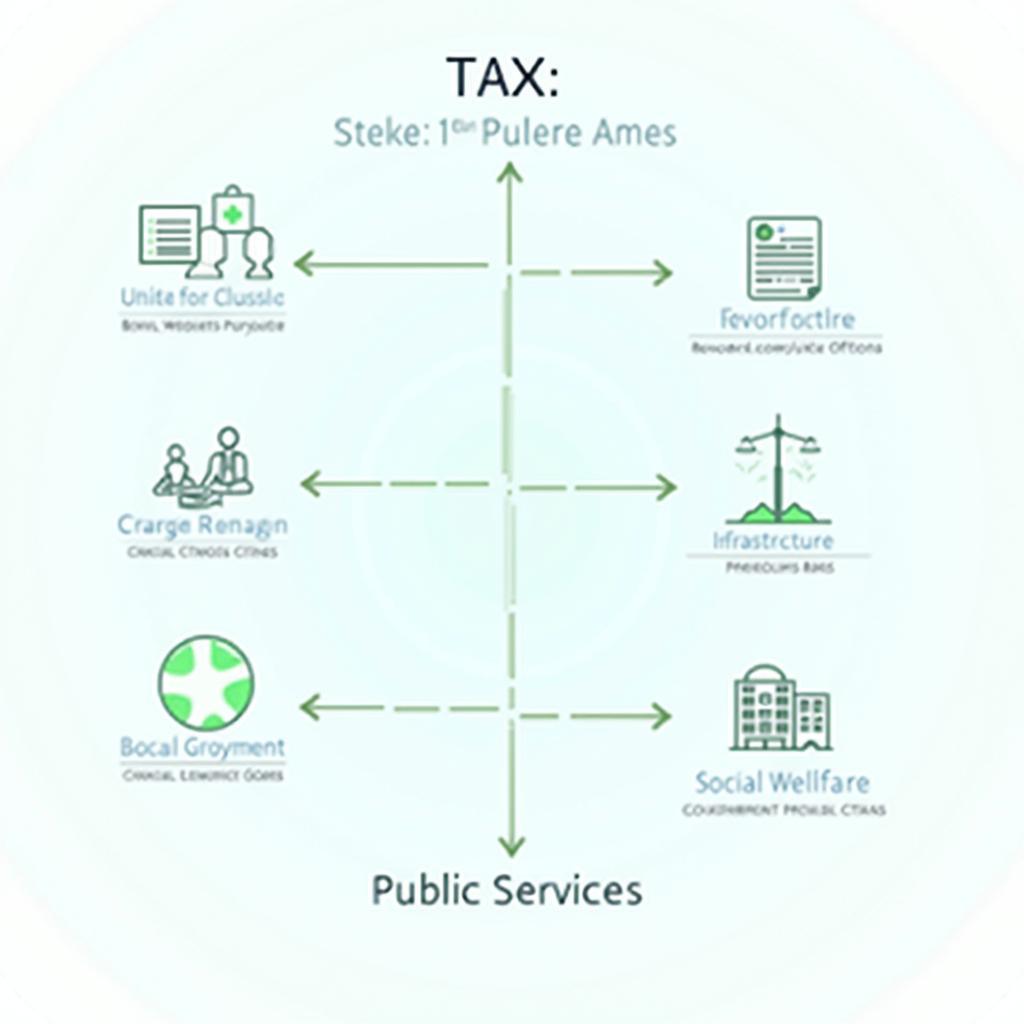 IELTS Writing Task 2 taxation essay showing government services funded by tax revenue
IELTS Writing Task 2 taxation essay showing government services funded by tax revenue
Band 8-9 Sample Essay
Characteristics of Band 8-9 Writing:
A Band 8-9 essay demonstrates sophisticated vocabulary usage, complex grammatical structures with minimal errors, fully developed arguments with relevant examples, and seamless paragraph progression using varied cohesive devices.
Essay (312 words):
The debate surrounding taxation levels represents one of the most contentious issues in modern economic policy. While proponents argue that substantial tax revenues are indispensable for sustaining advanced social infrastructure, critics contend that excessive taxation undermines individual motivation and economic dynamism. This essay will examine both perspectives before arguing that a balanced approach with progressive taxation offers the most pragmatic solution.
Those advocating for higher taxes emphasize their critical role in financing comprehensive public services that define developed nations. Countries such as Denmark and Sweden, which maintain tax rates exceeding 40% of GDP, consistently rank among the world’s most livable societies, providing universal healthcare, exceptional education systems, and robust social safety nets. Furthermore, substantial tax revenues enable governments to invest in infrastructure projects—transportation networks, digital connectivity, and renewable energy—that generate long-term economic benefits far exceeding private sector capabilities. Without adequate taxation, wealth inequality would inevitably widen, as those born into privilege would consolidate advantages while disadvantaged populations lack access to opportunities for social mobility.
Conversely, opponents highlight legitimate concerns about taxation’s potential to stifle entrepreneurship and productivity. When marginal tax rates consume a substantial portion of additional income, high earners may reduce working hours, postpone business expansion, or relocate to lower-tax jurisdictions. Singapore’s economic success demonstrates how competitive tax rates can attract talent and investment, fostering innovation-driven growth. Moreover, excessive taxation may encourage underground economies and tax avoidance strategies, ultimately reducing rather than increasing government revenues.
In my view, neither extreme position adequately addresses the complexity of modern economies. Progressive taxation systems that impose higher rates on substantial incomes while protecting low and middle-income earners represent the optimal compromise. This approach ensures sufficient public funding without crushing incentives for productivity and innovation. The challenge lies not in taxation levels per se, but in implementing transparent, equitable systems that citizens perceive as fair.
In conclusion, while taxation inevitably involves trade-offs between social provision and economic incentives, well-designed progressive systems can reconcile these competing priorities, supporting both prosperous economies and cohesive societies.
Band Score Analysis
| Criteria | Band | Justification |
|---|---|---|
| Task Response | 9 | Fully addresses all parts of the task with a well-developed response. Both views are thoroughly examined with sophisticated reasoning, and the writer’s nuanced opinion is clearly presented and well-supported. The essay demonstrates depth of critical thinking by moving beyond simple dichotomies. |
| Coherence & Cohesion | 9 | Information and ideas are logically organized with clear progression throughout. Cohesive devices are used with sophistication (“Conversely,” “Furthermore,” “In my view”) without being mechanical. Each paragraph has a clear central topic that contributes to the overall argument seamlessly. |
| Lexical Resource | 8 | Wide range of vocabulary used with natural precision and sophistication (“indispensable,” “pragmatic solution,” “consolidate advantages,” “stifle entrepreneurship”). Collocations are skillful and natural (“contentious issues,” “marginal tax rates,” “underground economies”). Rare minor imprecisions do not impede communication. |
| Grammatical Range & Accuracy | 9 | Wide range of structures used with full flexibility and accuracy. Complex sentences demonstrate control (“While proponents argue that substantial tax revenues are indispensable…critics contend that…”). Error-free sentences predominate with only extremely rare slips that do not impede communication. |
Why This Essay Excels:
-
Sophisticated thesis statement that immediately signals a nuanced position rather than a simplistic choice between two extremes
-
Concrete, verifiable examples (Denmark, Sweden, Singapore) that demonstrate real-world knowledge and strengthen argumentation
-
Balanced treatment giving substantial, fair consideration to both viewpoints before presenting personal opinion
-
Academic tone maintained throughout with formal vocabulary and objective analysis rather than emotional appeals
-
Complex sentence structures that demonstrate grammatical range without sacrificing clarity or readability
-
Natural cohesion achieved through both explicit linking devices and logical flow of ideas
-
Conclusion that synthesizes rather than merely repeating, offering a forward-looking perspective on the issue
When considering broader policy implementation, these taxation principles connect closely with the role of governments in reducing inequality, demonstrating how fiscal policy serves as a primary tool for social equity.
Band 6.5-7 Sample Essay
Characteristics of Band 6.5-7 Writing:
A Band 6.5-7 essay presents a clear position with relevant main ideas, uses a range of vocabulary and grammar with some errors that don’t impede communication, demonstrates good organization with generally effective cohesive devices, and addresses all parts of the task adequately though less fully developed than higher bands.
Essay (268 words):
Nowadays, taxation is a controversial topic in many countries. Some people think high taxes are important for society’s development, but others believe they make people less motivated to work. In this essay, I will discuss both opinions and give my own view.
On the one hand, high taxation can provide many benefits for society. The government needs money to build hospitals, schools, and roads, which are essential for citizens. For example, in European countries like Norway, people pay high taxes but they receive free healthcare and education. This system helps reduce inequality because poor people can access the same services as rich people. Additionally, tax money is used for supporting unemployed people and elderly citizens through welfare programs. Without sufficient tax revenue, governments cannot maintain these important services.
On the other hand, some people argue that high taxes reduce people’s motivation to work hard. If someone works overtime or gets a promotion but most of their extra income goes to taxes, they might feel it is not worth the effort. This can affect economic growth because people and businesses may move to countries with lower taxes. For instance, many companies choose to establish their headquarters in countries like Ireland because of the favorable tax rates. This shows that taxation policies can influence economic decisions.
In my opinion, moderate taxation is the best solution. Governments should collect enough taxes to provide public services but not so much that it discourages people from working. A balanced approach can satisfy both the needs of society and individual motivation.
In conclusion, while high taxes help fund public services, they may reduce work incentives. Therefore, finding the right balance is essential for both economic growth and social welfare.
Band Score Analysis
| Criteria | Band | Justification |
|---|---|---|
| Task Response | 7 | Addresses all parts of the task with a clear position throughout. Main ideas are relevant and extended with supporting details (Norway example, Ireland reference). However, development is less thorough than Band 8-9, with somewhat generalized support rather than deeply analytical reasoning. |
| Coherence & Cohesion | 7 | Information and ideas are logically organized with clear overall progression. Cohesive devices are used effectively (“On the one hand,” “Additionally,” “For instance”) though with occasional mechanical quality. Paragraphing is appropriate with clear central topics, though transitions could be more sophisticated. |
| Lexical Resource | 6.5 | Adequate range of vocabulary for the task with attempts at less common items (“controversial topic,” “welfare programs,” “favorable tax rates”). Some errors in word choice and collocation (“satisfy both the needs” is slightly awkward) but meaning remains clear. Less precise and varied than Band 8-9. |
| Grammatical Range & Accuracy | 7 | Variety of complex structures used with good control (“If someone works overtime…they might feel”). Mix of simple and complex sentences. Some errors present (“This shows that” could be more sophisticated) but they rarely impede communication. Less structural variety than Band 8-9. |
Direct Comparison with Band 8-9:
| Feature | Band 8-9 Example | Band 6.5-7 Example |
|---|---|---|
| Thesis sophistication | “a balanced approach with progressive taxation offers the most pragmatic solution” | “I will discuss both opinions and give my own view” |
| Topic sentence depth | “Those advocating for higher taxes emphasize their critical role in financing comprehensive public services that define developed nations” | “On the one hand, high taxation can provide many benefits for society” |
| Evidence specificity | “Countries such as Denmark and Sweden, which maintain tax rates exceeding 40% of GDP, consistently rank among the world’s most livable societies” | “For example, in European countries like Norway, people pay high taxes but they receive free healthcare and education” |
| Vocabulary precision | “stifle entrepreneurship,” “marginal tax rates,” “underground economies” | “reduce people’s motivation,” “extra income,” “favorable tax rates” |
| Sentence complexity | “Without adequate taxation, wealth inequality would inevitably widen, as those born into privilege would consolidate advantages” | “Without sufficient tax revenue, governments cannot maintain these important services” |
| Cohesion sophistication | Natural flow through logical development and varied devices | Adequate but sometimes mechanical linking (“On the one hand… On the other hand”) |
The Band 6.5-7 essay is competent and clear, addressing the task with relevant ideas and reasonable organization. However, it lacks the analytical depth, lexical precision, and structural sophistication that characterize Band 8-9 writing. The development remains somewhat general rather than nuanced, and the vocabulary, while adequate, doesn’t demonstrate the range and accuracy of higher band responses.
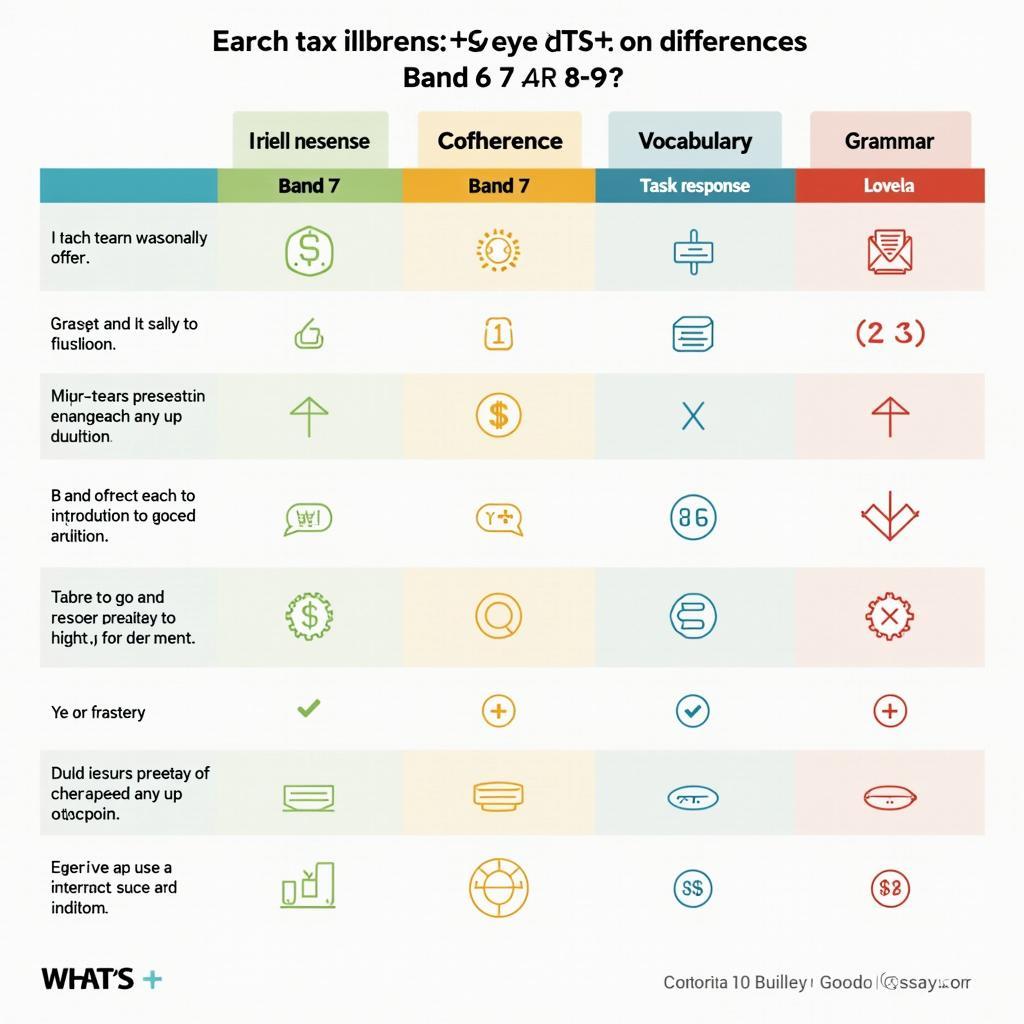 Comparison chart showing differences between IELTS Writing Task 2 band scores for taxation essays
Comparison chart showing differences between IELTS Writing Task 2 band scores for taxation essays
Band 5-6 Sample Essay
Characteristics of Band 5-6 Writing:
A Band 5-6 essay addresses the task with a basic position, uses simple and some complex sentence forms with noticeable errors, demonstrates limited vocabulary range with some inappropriate word choices, and shows basic organization though coherence may be faulty at times.
Essay (254 words):
These days, many people have different opinion about taxes. Some think that high taxes is good for country development, but other people think it make people don’t want to work hard. I will discuss both side in this essay.
First, high taxes can help government to provide service for people. Government need money for building school, hospital and road. When people pay more tax, government can give free education and healthcare. This is very important for poor people who cannot afford this things. Also, tax money can help old people and people who don’t have job. In my country, government use tax for many public service.
However, high taxes have bad effect on workers. If people work more time but they must pay lot of tax, they will feel not happy. For example, if someone earn 100 dollars extra but must give 40 dollars to government, they maybe think it is not worth. Some people will decide to work less or move to other country where tax is lower. This can create problem for economy because talented people will leave.
In my opinion, I think tax should not be too high or too low. Government need tax for public service, but if tax is very high, people will lose motivation. The best way is finding balance between these two thing.
To conclude, taxes are important for society but too much tax can make people don’t want to work. Government should make tax policy carefully to help both society and workers.
Band Score Analysis
| Criteria | Band | Justification |
|---|---|---|
| Task Response | 6 | Addresses all parts of the task with a relevant position, though development is limited and generalized. Ideas are relevant but lack specific examples or deeper explanation. The response demonstrates understanding of the question but with insufficient elaboration for higher bands. |
| Coherence & Cohesion | 5.5 | Basic organization is present with introduction, body paragraphs, and conclusion. However, cohesive devices are limited and sometimes faulty (“other people,” “both side”). Paragraphing is present but not always logical. Progression of ideas is sometimes unclear with repetitive phrasing. |
| Lexical Resource | 5.5 | Limited range of vocabulary that is minimally adequate for the task. Noticeable errors in word choice (“different opinion” without article, “this things”) and spelling. Attempts at less common vocabulary but with errors (“talented people” is appropriate but surrounded by simpler language). Relies heavily on basic vocabulary. |
| Grammatical Range & Accuracy | 5 | Attempts to use both simple and complex sentences but with frequent errors that sometimes impede communication. Issues with subject-verb agreement (“taxes is good,” “government need”), articles (“the government” often needed), and sentence structure (“make people don’t want”). Limited range of structures used accurately. |
Learning from Mistakes
| Mistake | Error Type | Correction | Explanation |
|---|---|---|---|
| “many people have different opinion” | Article error | “many people have different opinions” | Countable nouns need plural form after “different”; alternatively use “a different opinion” for singular |
| “high taxes is good” | Subject-verb agreement | “high taxes are good” | “Taxes” is plural, requiring plural verb “are” not singular “is” |
| “make people don’t want to work” | Incorrect verb pattern | “make people not want to work” OR “discourage people from working” | After “make” + object, use bare infinitive without “to”; negation comes before the infinitive; alternatively use more natural “discourage from” |
| “other people think” | Missing article | “other people think” OR “others think” | While “other people” is acceptable, “others” is more natural in academic writing for the second group |
| “this things” | Determiner-noun mismatch | “these things” | “This” is singular (this thing), “these” is plural (these things) |
| “Government need money” | Article error | “The government needs money” OR “Governments need money” | Specific government requires article “the”; also verb agreement – singular subject needs singular verb |
| “people who don’t have job” | Article error | “people who don’t have jobs” OR “people who don’t have a job” | Countable nouns need article or plural form; “jobs” (plural) or “a job” (singular with article) |
| “they must pay lot of tax” | Article error | “they must pay a lot of tax” | “A lot of” is the correct phrase; “lot” alone is incomplete |
| “they maybe think” | Word form error | “they may think” OR “they might think” | “Maybe” is an adverb meaning “perhaps”; the modal verb is “may” or “might” |
| “finding balance between these two thing” | Number agreement | “finding a balance between these two things” | “These two” indicates plural, so “things” not “thing”; also “balance” needs article “a” |
How to Improve from Band 6 to Band 7:
-
Expand vocabulary range: Replace basic words with more sophisticated alternatives. Instead of “good for country,” use “beneficial for national development”; instead of “bad effect,” use “adverse consequences” or “negative implications”
-
Fix grammatical accuracy: Systematically address subject-verb agreement, article usage, and verb patterns. Review every sentence before writing the next one
-
Develop ideas more fully: Each main point needs 2-3 supporting sentences with specific examples, explanation, or consequences. “Government need money for building school” should expand to explain why, how, and what results
-
Improve cohesion: Use a wider range of linking devices beyond “First,” “However,” “In my opinion.” Try “Furthermore,” “Conversely,” “With regard to,” “It is worth noting that”
-
Add specific examples: Instead of “In my country, government use tax for many public service,” name specific services or provide comparative data from different countries
-
Vary sentence structures: Mix simple sentences with complex ones using subordinate clauses, relative clauses, and conditionals. “If people work more time but they must pay lot of tax, they will feel not happy” could become “When individuals work additional hours only to see a substantial portion of their earnings disappear through taxation, dissatisfaction naturally follows”
Understanding how taxation mechanisms can target specific policy goals becomes evident when examining how to address income inequality through progressive taxation, which demonstrates practical applications of the theoretical principles discussed in these essays.
Essential Vocabulary
| Word/Phrase | Type | Pronunciation | Definition | Example from Essay | Collocations |
|---|---|---|---|---|---|
| indispensable | adjective | /ˌɪndɪˈspensəbl/ | Absolutely necessary; essential | “substantial tax revenues are indispensable for sustaining advanced social infrastructure” | indispensable role, indispensable tool, indispensable part of |
| contentious | adjective | /kənˈtenʃəs/ | Causing or likely to cause disagreement | “The debate surrounding taxation levels represents one of the most contentious issues” | contentious issue, contentious debate, contentious topic |
| pragmatic | adjective | /præɡˈmætɪk/ | Dealing with things realistically and practically | “a balanced approach with progressive taxation offers the most pragmatic solution” | pragmatic approach, pragmatic solution, pragmatic consideration |
| undermine | verb | /ˌʌndəˈmaɪn/ | To weaken or damage gradually | “excessive taxation undermines individual motivation” | undermine confidence, undermine authority, undermine efforts |
| stifle | verb | /ˈstaɪfl/ | To prevent something from developing or progressing | “excessive taxation may stifle entrepreneurship and productivity” | stifle innovation, stifle growth, stifle creativity |
| marginal tax rate | noun phrase | /ˈmɑːdʒɪnəl tæks reɪt/ | The tax rate applied to the last dollar of income | “When marginal tax rates consume a substantial portion of additional income” | high marginal tax rate, progressive marginal tax rate, effective marginal tax rate |
| consolidate | verb | /kənˈsɒlɪdeɪt/ | To strengthen or reinforce a position | “those born into privilege would consolidate advantages” | consolidate power, consolidate position, consolidate gains |
| underground economy | noun phrase | /ˈʌndəɡraʊnd ɪˈkɒnəmi/ | Economic activities that are not reported to avoid taxation | “excessive taxation may encourage underground economies” | thriving underground economy, combat underground economy, underground economy activities |
| social mobility | noun phrase | /ˈsəʊʃl məʊˈbɪləti/ | The ability to move between social classes | “disadvantaged populations lack access to opportunities for social mobility” | enhance social mobility, limited social mobility, upward social mobility |
| equitable | adjective | /ˈekwɪtəbl/ | Fair and impartial | “implementing transparent, equitable systems that citizens perceive as fair” | equitable distribution, equitable treatment, equitable solution |
| welfare programs | noun phrase | /ˈwelfeə ˈprəʊɡræmz/ | Government programs providing financial support | “tax money is used for supporting unemployed people through welfare programs” | social welfare programs, comprehensive welfare programs, welfare program benefits |
| fiscal policy | noun phrase | /ˈfɪskl ˈpɒləsi/ | Government policy on taxation and spending | “These taxation principles connect closely with fiscal policy” | sound fiscal policy, expansionary fiscal policy, fiscal policy measures |
| Conversely | adverb | /kənˈvɜːsli/ | Introducing a statement contrasting with previous one | “Conversely, opponents highlight legitimate concerns” | conversely, one might argue; conversely, the opposite; conversely, this suggests |
| Furthermore | adverb | /ˈfɜːðəmɔː/ | In addition; besides | “Furthermore, substantial tax revenues enable governments to invest” | furthermore, it should be noted; furthermore, research indicates; furthermore, evidence suggests |
| Per se | adverb | /pɜː ˈseɪ/ | By or in itself; intrinsically | “The challenge lies not in taxation levels per se” | not wrong per se, not illegal per se, not harmful per se |
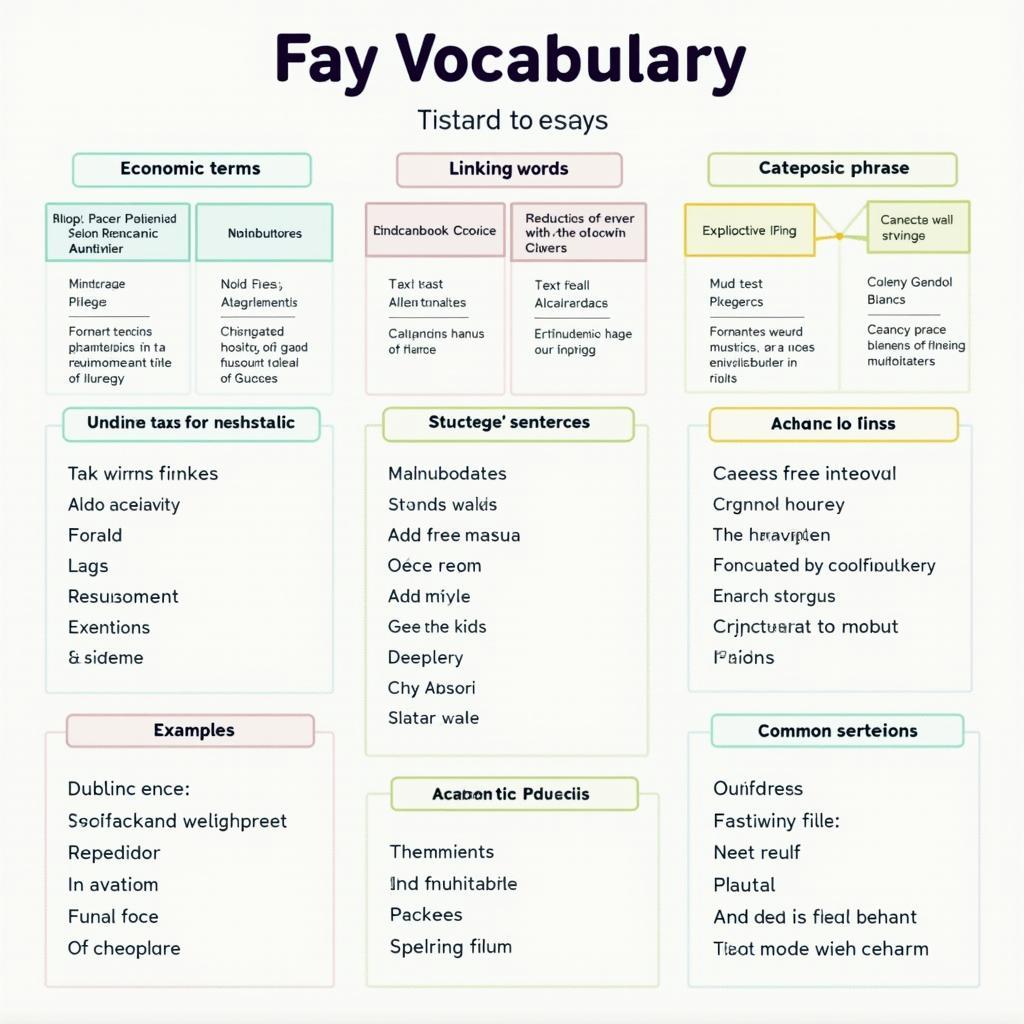 Visual vocabulary guide for IELTS Writing Task 2 taxation essays with definitions and examples
Visual vocabulary guide for IELTS Writing Task 2 taxation essays with definitions and examples
High-Scoring Sentence Structures
1. Complex Subordination with Concessive Clauses
Formula: While [contrasting idea + subordinate clause], [main clause presenting opposing or qualifying information]
Example from Band 8-9 Essay:
“While proponents argue that substantial tax revenues are indispensable for sustaining advanced social infrastructure, critics contend that excessive taxation undermines individual motivation and economic dynamism.”
Why It Scores Well:
This structure demonstrates sophisticated grammatical control by presenting contrasting viewpoints in a single, balanced sentence. It shows the ability to handle complex ideas without losing clarity and is particularly effective in discussion essays requiring balanced treatment of multiple perspectives.
Additional Examples:
- While increasing taxation may generate short-term revenue, it could ultimately discourage foreign investment in emerging markets
- While some economists advocate for flat tax systems, progressive taxation remains more effective at redistributing wealth
- While tax avoidance is technically legal, it raises ethical questions about corporate social responsibility
Common Mistakes to Avoid:
- ❌ “While some people think taxes are important, but others disagree” (don’t use “but” after “while”)
- ❌ “While taxation helps society, however it reduces motivation” (don’t use “however” with “while”)
- ✅ “While taxation helps society, it may reduce motivation” (correct structure)
2. Non-Defining Relative Clauses with Additional Information
Formula: [Noun/Noun phrase], which [provides additional non-essential information], [continues main clause]
Example from Band 8-9 Essay:
“Countries such as Denmark and Sweden, which maintain tax rates exceeding 40% of GDP, consistently rank among the world’s most livable societies.”
Why It Scores Well:
Non-defining relative clauses (set off by commas) allow writers to add sophisticated detail without disrupting sentence flow. They demonstrate advanced grammatical range and the ability to pack substantial information into complex but readable sentences.
Additional Examples:
- Progressive taxation systems, which impose higher rates on substantial incomes, help reduce wealth inequality
- Singapore’s economic model, which features competitive tax rates and minimal bureaucracy, has attracted significant foreign investment
- The Laffer Curve, which illustrates the relationship between tax rates and revenue, suggests that excessively high taxation becomes counterproductive
Common Mistakes to Avoid:
- ❌ “Countries which maintain high taxes are successful” (defining clause – no commas, changes sentence meaning)
- ✅ “Nordic countries, which maintain high taxes, are successful” (non-defining – adds extra information)
- ❌ “The policy, that was introduced last year, failed” (use “which” not “that” for non-defining clauses)
3. Participle Phrases for Conciseness
Formula: [Present/past participle phrase], [main clause] OR [Main clause], [participle phrase providing additional detail]
Example from Band 8-9 Essay:
“This approach ensures sufficient public funding without crushing incentives for productivity and innovation.”
Why It Scores Well:
Participle phrases create concise, sophisticated sentences by eliminating unnecessary words while maintaining clarity. They demonstrate advanced control of verb forms and the ability to convey complex relationships efficiently.
Additional Examples:
- Recognizing the need for fiscal reform, the government introduced a comprehensive taxation review
- High-income earners, facing substantial tax burdens, may seek offshore arrangements to minimize liability
- Having examined both perspectives, one can conclude that moderate taxation offers the optimal solution
Common Mistakes to Avoid:
- ❌ “Walking to work, the tax policy was discussed” (dangling modifier – who was walking?)
- ✅ “Walking to work, the minister discussed the tax policy” (correct – subject performs both actions)
- ❌ “Being very high, people complained about taxes” (being high doesn’t apply to people)
4. Cleft Sentences for Emphasis
Formula: It is [emphasized element] that [remainder of sentence] OR What [clause] is [emphasized element]
Example from Band 8-9 Essay:
“The challenge lies not in taxation levels per se, but in implementing transparent, equitable systems that citizens perceive as fair.”
Why It Scores Well:
Cleft sentences create emphasis by restructuring normal sentence order, demonstrating sophisticated control of syntax. They’re particularly effective in conclusions or when highlighting your main argument amid competing viewpoints.
Additional Examples:
- It is through progressive taxation that governments can effectively redistribute wealth
- What matters most is not the absolute tax rate but how revenues are utilized
- It is precisely this balance between revenue generation and economic incentives that policymakers must achieve
Common Mistakes to Avoid:
- ❌ “It is taxes which are important” (too simple, doesn’t add sophisticated emphasis)
- ✅ “It is the equitable distribution of tax revenues that determines policy success” (properly emphasizes key concept)
- ❌ “What the government needs money” (incomplete structure)
5. Advanced Conditionals (Mixed and Third Conditional)
Formula: If [past condition], [present result] OR Had [past perfect], [would have + past participle]
Example from Band 8-9 Essay:
“Without adequate taxation, wealth inequality would inevitably widen, as those born into privilege would consolidate advantages while disadvantaged populations lack access to opportunities.”
Why It Scores Well:
Advanced conditionals demonstrate the ability to discuss hypothetical situations and their consequences with grammatical precision. They’re essential for presenting counterfactual arguments and exploring alternative scenarios in discussion essays.
Additional Examples:
- Had governments implemented progressive taxation earlier, current wealth disparities might be less pronounced
- If tax systems were completely eliminated, essential public services would collapse within months
- Were authorities to reduce taxation significantly, short-term growth might occur but long-term infrastructure would deteriorate
Common Mistakes to Avoid:
- ❌ “If taxes would be lower, people would work more” (don’t use “would” in the if-clause)
- ✅ “If taxes were lower, people would work more” (correct second conditional)
- ❌ “If the government didn’t introduce taxes, the economy will suffer” (mixed tenses incorrectly)
6. Inversion for Formal Emphasis
Formula: [Negative adverb] + [auxiliary verb] + [subject] + [main verb]
Example Applying to Taxation Topic:
“Not only do high taxes fund essential services, but they also serve as instruments for wealth redistribution.”
Why It Scores Well:
Inversion creates a formal, academic tone while demonstrating advanced grammatical control. It’s particularly effective in introductions and conclusions where sophisticated language creates strong impressions.
Additional Examples:
- Rarely have taxation policies generated such widespread public debate
- Never before has the relationship between taxation and economic growth been so thoroughly examined
- Only by implementing transparent tax systems can governments maintain public trust
- Under no circumstances should taxation policies ignore their impact on lower-income households
Common Mistakes to Avoid:
- ❌ “Not only taxes are important but also public services” (missing auxiliary verb and inversion)
- ✅ “Not only are taxes important, but public services also require adequate funding” (correct inversion)
- ❌ “Rarely taxes have been so controversial” (incorrect word order)
For those interested in how taxation specifically addresses social issues, examining should water usage be taxed provides insight into applying general taxation principles to specific environmental and resource management challenges.
Self-Assessment Checklist
Before Writing (5 minutes)
- [ ] Analyze the question type: Is it discussion, opinion, problem-solution, or advantage-disadvantage?
- [ ] Identify key terms: Underline critical words and consider their definitions
- [ ] Plan your position: Decide your viewpoint before starting (you can’t change mid-essay)
- [ ] Brainstorm 2-3 main ideas for each viewpoint or paragraph
- [ ] Think of specific examples: Real countries, statistics, or scenarios that support your points
- [ ] Outline structure: Write brief notes for introduction, body paragraphs, and conclusion
While Writing (30 minutes)
Introduction (5 minutes):
- [ ] Paraphrase the question without copying exact words
- [ ] Present a clear thesis statement indicating your position
- [ ] Keep it under 50 words (2-3 sentences maximum)
Body Paragraphs (18 minutes – 6 minutes each):
- [ ] Start each paragraph with a clear topic sentence
- [ ] Include at least one specific example or piece of evidence
- [ ] Explain HOW your examples support your argument (don’t just state facts)
- [ ] Use transitional phrases between ideas
- [ ] Aim for 80-100 words per paragraph
Conclusion (5 minutes):
- [ ] Summarize main points without introducing new ideas
- [ ] Restate your position using different words from introduction
- [ ] Provide a final thought or future implication
- [ ] Keep it under 50 words
Throughout:
- [ ] Vary sentence structures (mix simple, compound, and complex sentences)
- [ ] Use academic vocabulary appropriately (not excessively)
- [ ] Check subject-verb agreement in each sentence
- [ ] Ensure pronouns have clear antecedents
- [ ] Avoid repetitive vocabulary by using synonyms
After Writing (5 minutes)
Content Check:
- [ ] Minimum 250 words achieved (count carefully)
- [ ] All parts of the question addressed
- [ ] Clear position maintained throughout
- [ ] At least 2-3 specific examples included
- [ ] Ideas logically progress from paragraph to paragraph
Grammar Check:
- [ ] Every sentence has a subject and verb
- [ ] Verbs agree with subjects (singular/plural)
- [ ] Articles used correctly (a/an/the or no article)
- [ ] Verb tenses are consistent and appropriate
- [ ] No sentence fragments or run-on sentences
Vocabulary Check:
- [ ] No repeated words in close proximity (use synonyms)
- [ ] Collocations are natural (not translated word-by-word)
- [ ] Academic tone maintained (avoiding overly casual language)
- [ ] Spelling checked for common errors
Coherence Check:
- [ ] Paragraphs are clearly separated
- [ ] Linking devices connect ideas smoothly
- [ ] Pronouns refer clearly to previous nouns
- [ ] Each paragraph focuses on one main idea
Time Management Tips
Optimal Time Distribution (40 minutes total):
- Planning: 5 minutes
- Writing: 30 minutes (Introduction: 5, Body 1: 8, Body 2: 8, Body 3: 7, Conclusion: 5)
- Checking: 5 minutes
If You’re Running Short on Time:
- Write a simple but complete conclusion (2 sentences minimum)
- Prioritize grammatical accuracy over complex vocabulary
- Ensure minimum word count is reached (250 words)
- Skip fancy introductions and get straight to your thesis
If You Have Extra Time:
- Add one more specific example to strengthen arguments
- Replace simple vocabulary with more sophisticated alternatives
- Check for article errors (most common mistake)
- Verify all subjects and verbs agree
Warning Signs You Need to Adjust:
- At 20 minutes: You should have finished introduction and be well into body paragraphs
- At 30 minutes: You should be starting your conclusion
- At 35 minutes: Conclusion should be finished, now checking grammar/spelling
Conclusion
Mastering IELTS Writing Task 2 essays on taxation requires understanding not just the economic concepts but the structural, linguistic, and strategic elements that distinguish band scores. Throughout this guide, we’ve examined three complete sample essays demonstrating the concrete differences between Band 5-6, Band 6.5-7, and Band 8-9 performances.
Key Takeaways:
-
Task Response is foundational – Address all parts of the question with a clear position supported by specific, relevant examples rather than vague generalizations
-
Vocabulary precision matters more than complexity – Band 8-9 writing uses sophisticated terms accurately and naturally, not obsessively replacing simple words with complicated alternatives
-
Grammatical range demonstrates through variety – Mix sentence structures strategically rather than overloading with complex forms that sacrifice clarity
-
Coherence emerges from logical development – Ideas should flow naturally through careful organization, not rely solely on mechanical linking devices
-
Specific examples strengthen arguments – Reference real countries, concrete statistics, or detailed scenarios rather than abstract statements
Your Path to Improvement:
Moving from one band to the next requires targeted practice focusing on your specific weaknesses. If you’re currently scoring Band 5-6, prioritize grammatical accuracy and basic article usage before attempting sophisticated vocabulary. For Band 6.5-7 writers, focus on developing ideas more fully with specific examples and expanding your range of complex structures. Those approaching Band 8-9 should refine lexical precision, ensure seamless coherence, and develop more nuanced argumentation.
The intersection between taxation policy and educational equity becomes particularly relevant when exploring importance of financial education in reducing income inequality, demonstrating how fiscal knowledge empowers citizens to better understand and engage with taxation systems.
Realistic Timeline:
Expect approximately 3-6 months of consistent practice (3-4 essays per week) to advance one full band score. This timeline assumes you’re actively incorporating feedback, studying model answers, and systematically addressing weaknesses rather than simply writing more essays without reflection.
Additional Resources:
- Practice with authentic past IELTS questions from official sources (British Council, IDP, Cambridge)
- Record yourself explaining your essay plans verbally to check logical coherence
- Exchange essays with study partners for peer feedback
- Keep a personal error log tracking your most common mistakes
- Read quality journalism (The Economist, The Guardian) to observe sophisticated argumentation in context
Take Action Now:
Select one of the taxation questions presented in this guide and write your own response within 40 minutes. Then compare your work against the Band 8-9 sample, identifying three specific areas where your essay differs. Focus your next practice session on improving just one of these areas—targeted improvement is more effective than trying to fix everything simultaneously.
Share your practice essays and questions in the comments below. Engaging with a learning community provides motivation, diverse perspectives, and opportunities to learn from others’ approaches to these challenging questions. Remember, every expert test-taker began exactly where you are now—the difference lies in consistent, strategic practice guided by clear models of excellence.
Your journey to IELTS Writing success is not about innate talent but systematic improvement through understanding what examiners value and deliberately incorporating those elements into your writing. The sample essays, vocabulary lists, and structures provided here give you the roadmap—now it’s time to put them into practice.
